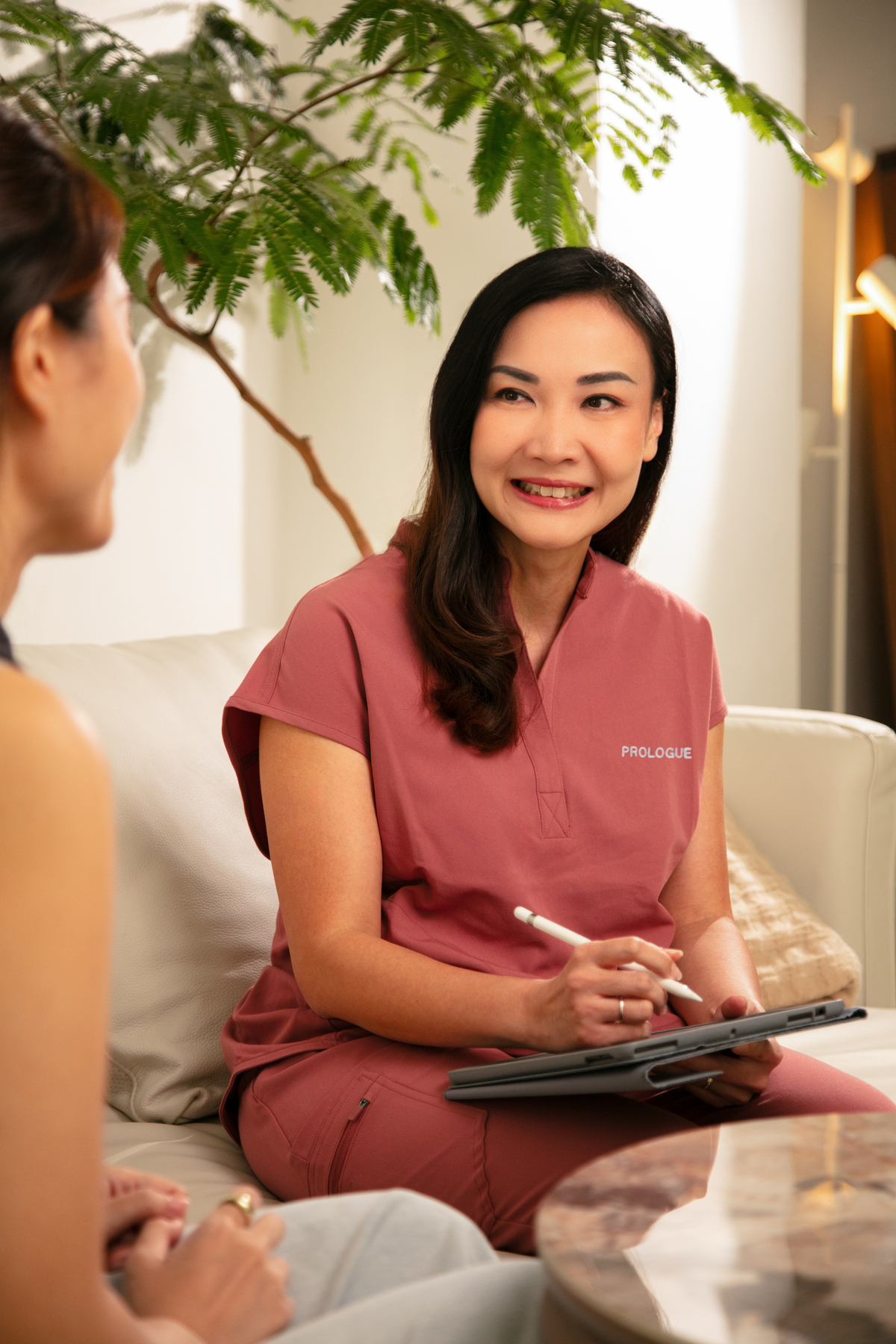When I was a GP more than ten years ago, I would often see women in their late thirties and forties complaining of a wide range of symptoms. They would describe hot flushes, irregular sleep, mood swings, or changes to their skin and hair. At that time, I would usually put it down to “hormonal changes” and reassure them that things would pass. What I did not fully realise then was that many of these women were already going through perimenopause or even menopause.
Now, in my mid-forties, I find myself experiencing some of these very same symptoms. That lived experience has given me a new perspective. It’s not “just hormones”– it’s a transition that affects how we feel, think, and even see ourselves. Women who come to me today are not only looking for a diagnosis; they are seeking understanding, reassurance, and practical ways to cope. Their biggest fear is not necessarily aging itself, but the uncertainty of what menopause means for their bodies, careers, relationships, and sense of self.
For too long, menopause has been framed as the “end” of a chapter – the loss of fertility and, by extension, vitality. I believe it is more helpful to see it as a new season of life. Yes, it comes with discomfort, but life expectancy has increased so much that women now spend a significant portion of their lives after menopause. That makes it even more important to embrace this change with openness and strength.
What many don’t realise is that menopause doesn’t arrive suddenly. It often begins quietly in the form of perimenopause, sometimes as early as the late thirties. Women may notice irregular cycles, disrupted sleep, brain fog, or unexpected shifts in mood. These symptoms can creep into daily life, affecting performance at work, straining family relationships, and undermining self-confidence.
(Related: What's in My Portfolio - Dr Kelvin Chua, Senior Medical Director and Founder of SL Aesthetic Group)
I remember a patient who was a senior executive; she came in worried that she was “losing her edge” because of forgetfulness and fatigue. What she was really experiencing were the early stages of perimenopause. Naming it gave her relief – she wasn’t “failing”, but going through a natural transition.
The tragedy is that so many women suffer in silence, either out of embarrassment or the belief that it’s just something they have to endure. We used to treat mental health the same way –quietly, in the shadows – until the conversation became more open and compassionate. Menopause deserves the same shift in how we talk about it.
The good news is that there are effective ways to navigate this season. For myself, I’ve learned to cope by making small but meaningful changes – cutting back on coffee to ease hot flushes, exercising to lift my mood and sleep better, and using planners and puzzles to manage brain fog. I also take joint-support supplements, eat more brain-nourishing foods, and keep my skin hydrated with supportive treatments to feel cared for inside and out.
But beyond coping, women deserve to reclaim vitality. Medical support exists, whether through hormone replacement therapy when appropriate, or evidence-based supplements that target specific symptoms. No two menopause journeys are the same, and the right approach should be tailored to each woman’s needs and preferences.
I want women to know that menopause does not mean the end of youth or vibrancy. It can be a powerful stage of self-discovery, marked by freedom, wisdom, and flourishing. With the right guidance and support, this transition can be less about loss, and more about opportunity – a chance not just to survive, but to thrive.
For more information, click here












 Back
Back
